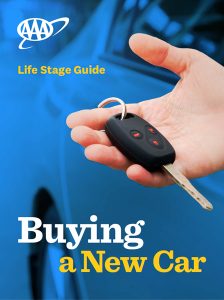Getting into an accident can be unsettling, as in the case of a minor fender bender, or downright devastating in a worse scenario. The impact of personal injuries and expensive car repairs scare most of us, even though we have car insurance.
When a claim is made, one of the key factors that insurance companies look to determine is who is to blame. Amid the police report, adjuster investigations and overall confusion, throw in the concept of no-fault insurance. What does that even mean?
What Is No-Fault Insurance?
Insurance terms can be perplexing. Some drivers mistakenly think that “no-fault” means that no party will be blamed for an accident, but this is not the case.
In states with no-fault laws, each driver is required to file a claim with their own insurance company after an accident if they are injured. This way, each insurance company compensates its own policyholders for the costs of minor injuries, regardless of who was at fault.
The Purpose of No-Fault Insurance
While insurance companies work to determine which party caused an accident, there are often medical expenses that need to be paid.
No-fault insurance is designed to help policyholders get paid quicker and ultimately reduce the cost of auto insurance by taking small claims out of the courts, according to the Insurance Information Institute.

No-Fault Auto Insurance Is Only Available in Certain States
Not every state has a no-fault system. In the Northeast, laws have been enacted in Massachusetts, New Jersey and New York.
All drivers in these states are required to purchase personal injury protection (PIP) as part of their auto insurance policies, which is what helps to pay your covered medical expenses after an accident.
Even if you do not live in a no-fault state, you may be required to purchase this type of coverage. During the process of securing a quote, your insurance agent will explain the laws that apply to you.
Limited Right to Sue
Beyond the ability to apply to their own insurance provider for personal injury benefits, residents of no-fault states have a limited right to sue after an accident. While the specifics vary based on where you live, in general this means that there are restrictions on when you can sue the other party if they are determined to be at-fault.
In limiting the right to sue, states aim to reduce the number of lawsuits related to car accidents by making the threshold higher. Parties can sue if injuries are severe or if an accident results in death. Each state sets its own threshold, which can be set in monetary terms (bills that equal a certain amount) or verbal terms (a description of the type of injury).
No-Fault Insurance Does Not Cover Repairs to Your Vehicle
Since no-fault insurance is limited to personal injury, property damages that result from an accident are handled in accordance with the traditional insurance process. Your collision insurance will pay claims for the damages incurred to your own vehicle if you opted for it. If your car is leased or financed, you would have been required by your financial institution to purchase this type of coverage.
Property Damage Liability Still Applies
No-fault insurance pertains to the personal injury component of damages after an accident. If you were responsible for the situation that occurred, you are still liable for the expenses related to property damage. This means that if you hit another vehicle and damaged it, you are responsible for paying your deductible, and your insurance company will cover the remaining expenses.
Optional No-Fault Coverage
What is no-fault insurance in the context of policy options? If you live in a state that does not have a no-fault system (Rhode Island, Connecticut, New Hampshire in the Northeast), you may still have the option of purchasing this type of coverage. Since there are benefits and disadvantages to no-fault policies, spend time thinking about what will be best in your individual circumstances or consult with an insurance agent. Those who opt for no-fault coverage often do so because it is easier to receive payment for medical expenses should they be injured in an accident.
Ongoing Debate
There is an ongoing debate as experts, lawmakers, insurance companies and drivers weigh in on the impact of a no-fault insurance system. Some argue that the ease with which drivers can file claims with their own insurer increases fraud. Others counter with the necessity of providing drivers with a swifter way to handle injuries after an accident. Even among the states that have a no-fault system, there are varying litigation thresholds rather than one standard.
Whether you live in a no-fault state or not, the topic of no-fault insurance is one that may prompt you to review your policy, which is always beneficial. You might spend some time considering the potential financial impact of an accident or the ease with which personal injury claims will be paid. As you evaluate your own coverage to make sure it is sufficient for your needs, it is advisable to speak with an agent. Get clarification on policy terms and confusing phrases that complicate auto insurance discussions.
Still have a question about how no-fault insurance works? Ask us in the comments below.
To learn more about AAA insurance, get a quote or contact an agent, visit AAA.com/Insurance.
One Thought on “What Is No-Fault Insurance?”
Leave A Comment
Comments are subject to moderation and may or may not be published at the editor’s discretion. Only comments that are relevant to the article and add value to the Your AAA community will be considered. Comments may be edited for clarity and length.

















Great information [in today’s email] on both what No Fault Insurance covers and on Reminders in taking your Prescription meds and how to avoid skipping doses.